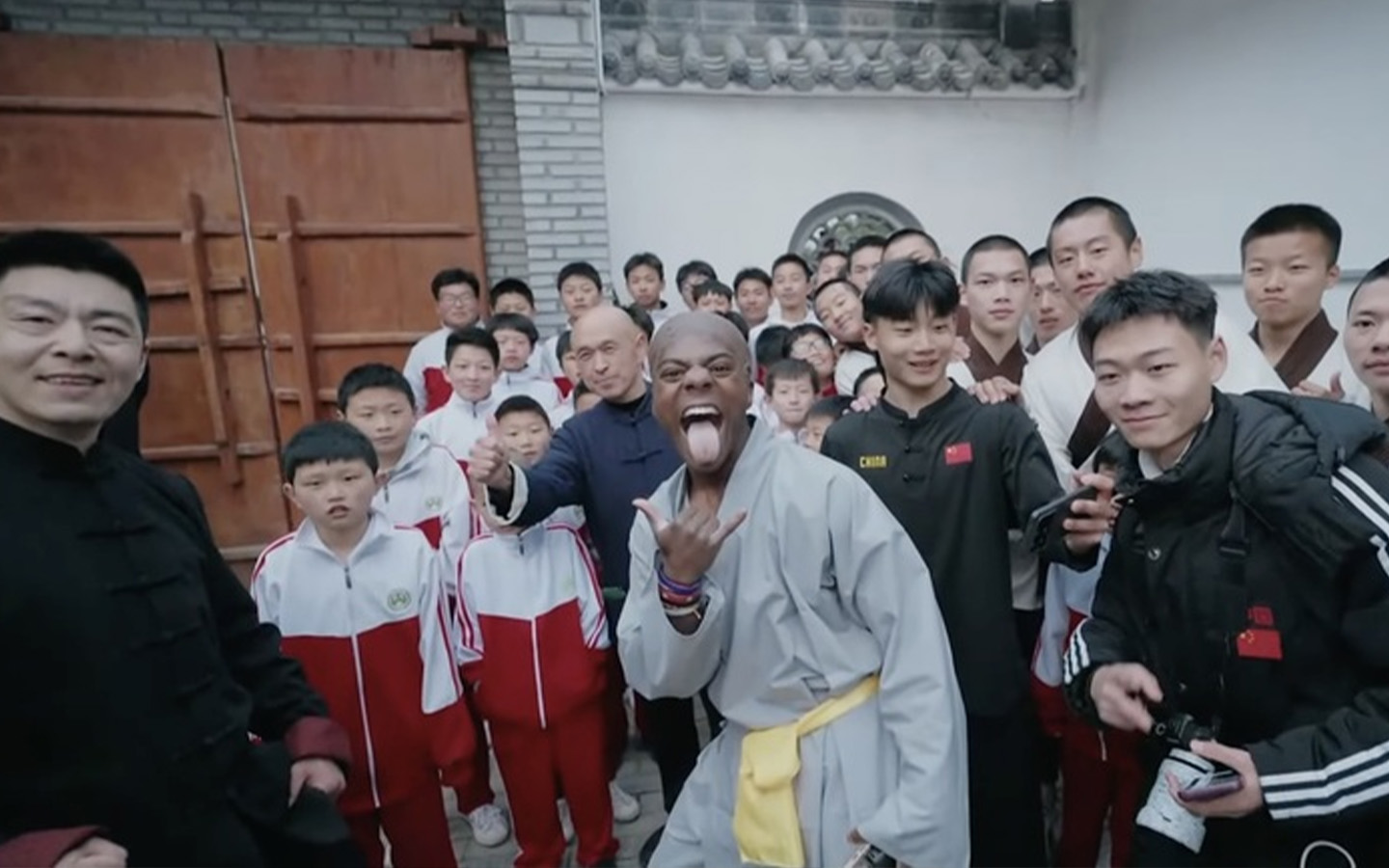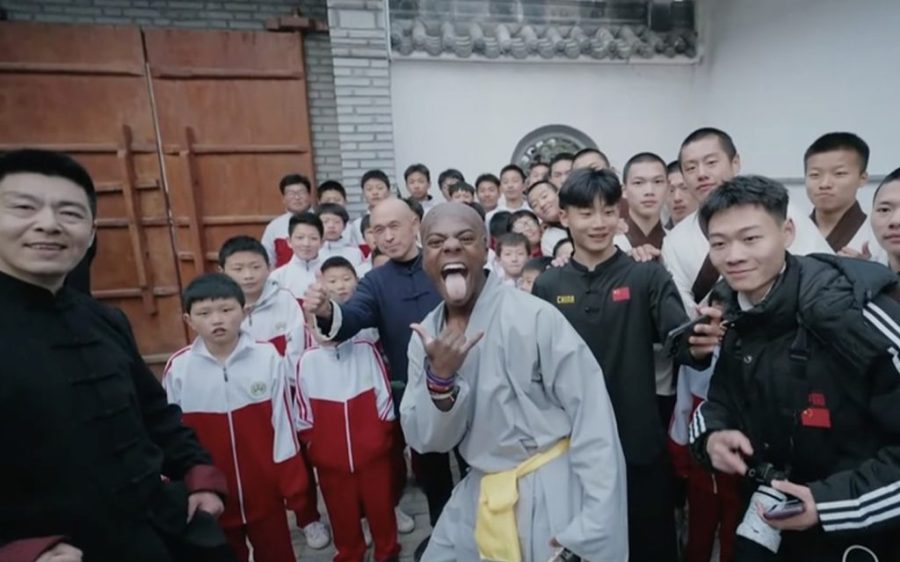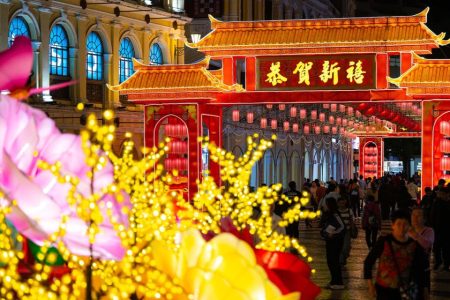Love him or hate him, IShowSpeed – or simply Speed – has emerged as one of the most impactful Gen Z influencers, amassing tens of millions of fans across his various social media accounts on YouTube, Instagram and TikTok in the span of only a few years.
Before becoming a global sensation, the 20-year-old Darren Watkins Jr., to use his real name, started out as a casual, small-time streamer, kicking it all off in December 2017 with videos of himself playing video games such as Fortnite and NBA2K.
“When I first started my stream, I only had one viewer, two viewers, and that kept me going,” Speed said in a 2024 Forbes interview. “As more people watched, I thought I could get somewhere with this and I had fun.”
The US influencer hasn’t looked back since, turning his hobby into a bonafide career that has earned him accolades such as Best International Streamer and Streamer of the Year at the 2024 Streamer Awards.
[See more: ‘Live-streamer’ is now an official job title in China]
As his popularity soared, Speed began diversifying his content, transplanting his live streams from his bedroom to locations such as Europe, Japan, India and Southeast Asia.
Recently, the influencer travelled to China, where he visited eight locations between 24 March and 7 April, including Shanghai, Beijing, Henan province, Chengdu, Chongqing, Hong Kong, Shenzhen and Changsha.
The two-week tour went viral, making headlines for drawing attention to China’s traditional culture, with Chinese state media praising Speed for showcasing an “unfiltered China” to global audiences and promoting exchange between the US and China.
The trip also put on full display Speed’s strong fan base in China. This was particularly evident during the Hong Kong leg of the tour, which saw the influencer being mobbed by enthusiastic fans, many of whom were young people who took advantage of their day off school during the Ching Ming Festival to follow their idol around town.
Speed’s ‘absurdist’ humour is one reason for his popularity

According to Cao Hualin, a PhD researcher at Leiden University who studies influencer culture and politics in China, one of the major reasons for Speed’s popularity in China is his ability to deliver highly “absurd” content, described as “抽象” (literally abstract) in Chinese, which interests and appeal to young Chinese internet users.
“He has this weird sense of humour that engages or resonates with a lot of young Chinese internet users,” Cao explains, adding that China’s homegrown influencers “cannot perform like that.”
Liu Bowen, a Chinese Speed fan who has been following the influencer since 2021, agrees, noting that the US online personality’s “exaggerated style,” “humorous language” and “excellent acting skills” have all contributed to his success in China.
[See more: Instagram announces age restrictions on live streaming]
As an example, Liu highlights one memorable scene between Speed and a number of Chinese football fans in Chongqing who resembled renowned players such as Cristiano Ronaldo, Lionel Messi and Son Heung-min.
That absurdist interaction begins with Speed coming into contact with an individual whose face is covered with a printout of Messi, a football player that Speed has repeatedly expressed disdain towards. Speed initially appears disgusted, but upon removing the mask, the individual is revealed to be a lookalike of Speed’s football idol, Ronaldo, prompting the US influencer to make a humorous 180-degree turn in his attitude.
Another notable example of Speed’s trademark absurdist humour can be seen during his visit to the Shaolin Temple in Henan province, where he undertook kung fu training while dressed up as a monk, complete with a bald cap. One segment saw the influencer having a stick broken on his outstretched arm, resulting in him emoting in an exaggerated manner by sticking out his tongue and cussing wildly.
Speed’s use of “Sunshine, Rainbow, White Pony” and Super Idol

The Chinese songs “Sunshine, Rainbow, White Pony (陽光彩虹小白馬)” and “Love You at 105ºC (熱愛105ºC的你)” have also played a pivotal role in Speed’s success in the country. In particular, Liu notes that many Chinese were introduced to Speed after viewing his 2022 viral reaction video to “Sunshine, Rainbow, White Pony,” a song about optimism and overcoming anxiety, which makes liberal use of the common Chinese filler “那個” (na-ge, literally “that”), a word that is sometimes mistaken for a similar sounding English racial slur.
“Someone recommended the “Nei Na-ge song” [i.e. ‘Sunshine, Rainbow White Pony’] for him [Speed] to listen to and his reaction in the beginning was that it’s probably an edit [of the original song],” Liu says.
The influencer ended up tracking down the original music video in the belief that it would not feature the supposed racial slur. Initially, this appeared to be the case, with Speed enjoying the MV, which Liu points out “is like a children’s song.”
However, as the chorus, which consists largely of repetitions of the filler “nei na-ge,” begins to play, Speed’s enthusiastic and joyous demeanour transforms into one of disgust, as he repeatedly smashes his table and yells in an exaggerated manner in response to what he wrongly believes to be pejorative language.
“That video had extremely high views in China, including on Bilibili [the Chinese version of YouTube] and Douyin [the Chinese version of Tiktok],” Liu points out.
[See more: China’s Gen Z social media users are now being photographed with fake baby bumps]
Cao agrees that Speed “has this talent” that allows him to turn “all this kind of misunderstanding…or hedonic episode [about ‘Sunshine, Rainbow, White Pony’] into a very interesting show.”
Even though he is now well aware of the fact that “na-ge” is not a derogatory term in Chinese, Speed continues to exploit the word for humour, as seen throughout his China Tour. For instance, while visiting the marriage market in Shanghai, the online personality ends up singing the chorus of “Sunshine, Rainbow, White Pony” with fans, despite initially feigning anger.
Similarly, during his Chongqing stream, he even ends up performing the song with its original singer, Da Zhang Wei, who noticeably avoids singing the chorus and instead lets Speed take the lead.
“He [Speed] has this sense of humour and self-mockery,” Cao says. “The Chinese people always appreciate people who have this kind of ability to be able to self-mock.”
As well, Speed has attracted attention in China and worldwide through the Super Idol meme, which is based on “Love You at 105ºC,” a song popularised by Douyin influencer, Tian Yiming, in 2021.
A self-professed fan of the meme, Speed’s 2022 attempt to sing the Mandarin language song using English romanisation attracted considerable attention in China as it completely disregarded the pronunciation of the language, butchering the lyrics to humorous effect.
The influencer continued to capitalise on the song during his China tour by singing it acapella with Tian in Chengdu, as well as filming a clip with the Douyin performer that has since received millions of views.
Speed’s distinctive way of showcasing China

While Speed has attracted plenty of attention in China, his documentation of the country as a foreign internet celebrity is by no means unique, as there are plenty of other such personalities,” including “Afu” Thomas (阿富), Barrett, Amy Lyons and Raz Gal-Or.
Liu, however, argues that Speed differs by presenting the country in “a slightly more objective” manner than the others, who “may have already lived in China for many years and have a very good understanding of the country,” adding that these China-based foreigners tend to only showcase the positives of China.
“But what about Speed? He is like a tourist. He had some understanding of China before, but he had never been to the country. When he came to China, it was from the perspective of a tourist, so the way he views things is more objective.”
Another way in which Speed distinguishes himself from other foreign internet celebrities in China is by creating what Cao describes as “contentious scenes” and “contentious topics” that generate discussion, although the extent to which this is deliberately orchestrated is open to debate.
[See more: Who is Uncle, IShowSpeed’s Chinese companion?]
One prominent example that the academic cites is the controversy involving Speed’s companion, “Uncle” and entrepreneur, Weng Donghua.
The former is a 49-year old livestreamer named Lin Jiang, who followed Speed across five Chinese cities to promote the delicacies of his hometown, Chengdu, eventually becoming the US influencer’s de-facto companion during the Shenzhen and Changsha leg of the tour. The latter, meanwhile, appeared during the Changsha livestream, serving as Speed’s guide at the Wenheyou restaurant, of which he was a director.
Cao notes that Chinese internet users were quick to compare the two men, with Lin being praised for his devotion to his hometown. At the same time, the academic notes that Speed’s recognition of Lin’s efforts was beneficial to the US influencer’s standing among the Chinese public.
“Chinese people can see that as a foreigner, he is very friendly to Chinese people,” Cao says. “He appreciates this kind of morality, devotion or correctness that Chinese people [traditionally value].”
By contrast, Weng was vilified online for his poor conduct while showing Speed around his establishment, especially when he aggressively ordered Lin to vacate his seat next to Speed.
“The boss of Wenhegyou is very bullying and very aggressive, and not showing the right [actions] that Chinese internet users would expect a huge, important figure to do,” Cao says, adding that the Chinese public felt that Speed’s tour wasn’t simply an opportunity for Weng, but also for the whole country to showcase itself to the world.
Did Speed’s popularity boost China’s soft power?

For many overseas audiences, Speed’s livestreams served as a window into China, with Liu noting that his videos helped to promote both traditional and modern Chinese culture.
The former was well exemplified when Speed took part in activities such as acupuncture, kung fu, a traditional tea ceremony and lion dancing. Meanwhile, Liu points out that more modern culture was well showcased during the Shenzhen stream, which featured robots, drones and driverless cars, and the Chongqing broadcast, which Speed described as a “Cyber City” due to its futuristic infrastructure.
Cao shares a similar view, pointing out that Speed’s broadcasts served as a “unique way” for the country, which normally has a “weakened position in terms of global communication,” to enhance its soft power.
On the flip side, the impact that internet celebrities have in terms of promoting a particular place should not be overstated, as Cao notes that the content produced by individuals such as Speed “is only for short-term entertainment.”
[See more: Mostly female and glued to Facebook: A snapshot of social media usage in Macao]
“Foreign influencers come to China and do something interesting with the local people, and then that’s it,” Cao points out. “Nobody would really appreciate the real, internal side of the city. For example [the] people’s lifestyle…[and] the real socio-political development of that city.”
Cao admits that while Speed can certainly put a city on the map, destinations such as Chengdu and Chongqing don’t really require such promotion, as “they are already on the edge of overtourism.”
Liu agrees, and suggests that Speed should consider visiting “less mainstream” destinations for his next China tour such as Yunnan, Inner Mongolia, Xinjiang and Tibet, as he feels the final streams, especially the Changsha one, which involved collaboration with a local TV studio, was much too commercialised and not reflective of the “real China.”
“I hope more foreign [internet celebrities] can visit China and do similar livestreams,” Liu says. “At the very least, it will allow foreigners to see the real China. I think this is good for China and the world because many countries have a deep misunderstanding of China.”






